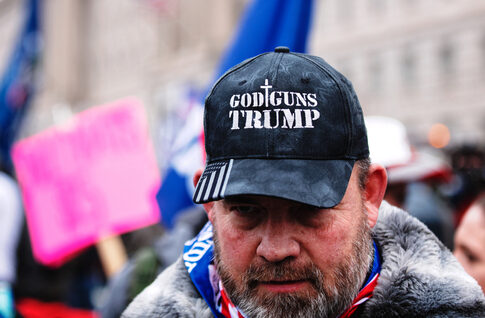Donald Trump has announced a plan to push for national concealed carry reciprocity, sparking a debate over Second Amendment rights and state sovereignty. Trump argues for a national recognition of concealed carry permits. Rep. Thomas Massie backs Trump introducing a bill.
Concealed Carry Reciprocity and Its National Impact
Trump’s initiative for national concealed carry reciprocity seeks to ensure that a permit issued in one state is valid across all 50 states. Similar to how driver’s licenses are accepted nationwide, Trump’s proposal aims to streamline gun rights for lawful carriers traveling between states. Rep. Thomas Massie introduced HR9534, advocating for permitless carry reciprocity. According to Massie, enjoying a constitutionally protected right, such as gun ownership, should not hinge on state boundaries or permits.
The National Constitutional Carry Act, spearheaded by Massie, aims to remove existing barriers, thereby supporting Trump’s Agenda 47. However, statistical analyses reveal a mere 1% chance of the bill’s enactment amidst a polarized political climate, showcasing the challenges ahead.
Trump announces federal reciprocity among all the states for people with a concealed carry permit, apparently oblivious to the 10th Amendment, which prohibits the federal government from forcing states to enforce federal law. Printz v. United States, 521 U.S. 898 (1997). https://t.co/7urQohLQPq
— Tom Mars (@TomMarsLaw) November 10, 2024
Challenges and State Sovereignty Debates
Opponents argue that nationwide concealed carry reciprocity might undermine state laws, potentially leading to a decrease in firearm safety standards. Law enforcement and advocacy groups, including Everytown for Gun Safety, raise concerns that this policy could create loopholes for unvetted individuals carrying firearms across borders. Trump’s proposal, embedded in the larger Project 2025 and Agenda 47 initiatives, underscores attempts to align gun regulations federally, challenging states’ autonomy.
Trump’s comparison of concealed carry permits to driver’s licenses highlights the simplicity and convenience he envisions. Nevertheless, critics warn that these changes could pose significant risks to public safety. Democrats and various groups have consistently pushed back, citing studies suggesting that relaxed gun laws may lead to increased violent crime and gun theft incidents.
Thank you, Mr. President, for the strong statement of support for my legislation — HR 38, The Concealed Carry Reciprocity Act! https://t.co/JXNh1j8nVR
— Rep. Richard Hudson (@RepRichHudson) November 11, 2024
Looking Forward: Trump’s Continued Gun Rights Advocacy
Trump has consistently championed national concealed carry reciprocity, a stance reinforced by his endorsement from the National Rifle Association. Despite previous legislative setbacks, the former president’s commitment to broadening Second Amendment protections remains resolute.
Trump’s potential return to office could pave the way for these ambitious firearms policies. His previous administration saw the appointment of three Supreme Court justices with strong pro-gun rights leanings, solidifying his influence on future legislative directions. Massie claims, “The time to stand up for our Second Amendment right to keep and bear arms is always: Now. Constitutional Carry is recognized by 29 states, and it is important to keep building on this momentum. If we win the House, the Senate, and the White House we will have a running start on getting this legislation enacted next year.”
Sources:
- Project 2025 Would Increase Gun Violence, Reversing Historic Declines – Center for American Progress


